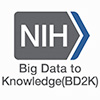 .
.
Medical Library Association - Professional Competencies for Health Sciences Librarians
The MLA outlines seven areas to promote success for Health Sciences Librarians throughout their careers.
-
Competency #1
Understand the health sciences and health care environment and the policies, issues, and trends that impact that environment including:
- current management and business practices
- the parent organization's (academic medical center, hospital, government, corporate, etc.) major policy and program sources
- the health sciences professions
- the clinical care, research, medical education, cultural, ethical, economic, and legal issues and environments
- various health and health-related organizations
-
Competency #2
Know and understand the application of leadership, finance, communication, and management theory and techniques including:
- understanding the institution's mission and planning processes and the role of the library in the institution
- forging and maintaining alliances with universities, public libraries, public health services, community-based organizations, and others to meet users' information needs
- human resources management including recruitment, retention, staff development, and mentoring
- facilities planning and space allocation
- budgeting, cost analyses, and fund-raising
- public relations, marketing, and advertising
- library programs and services administration
-
Competency #3
Understand the principles and practices related to providing information services to meet users' needs including:
- the information needs of health practitioners, researchers, administrators, educators, students, patients, consumers, and the general public
- the institution's information policies
- methods of information delivery and access including consideration of the specific information needs of diverse populations
- information services management
Learning Content Recommendations:
-
Competency #4
Have the ability to manage health information resources in a broad range of formats including:
- selection, acquisitions, and control of resources including the licensing of resources
- scholarly publishing, copyright, licensing, privacy, and intellectual property issues
- conservation, preservation, and archiving of materials in all formats
- cataloging, classification, abstracting, and thesaurus construction and knowledge representation
- national and international standards and conventions
- trends in information formatting, production, packaging, and dissemination
-
Competency #5
Understand and use technology and systems to manage all forms of information including:
- basic principles of automated systems, data standards, and systems analysis techniques including design and evaluation
- acquisition, use, and evaluation of information technologies
- integration of systems and technologies
- technological solutions for permanent access to electronic information
- applications in emerging areas of biomedicine computational biology and health information, including electronic health care systems and records
- communications and information infrastructure including the Internet and Web
Learning Content Recommendations:
- BDK04 - Clinical Data and Standards Related to Big Data
- BDK05 - Basic Research Data Standards
- BDK10 - Information Retrieval
- BDK12 - Data annotation and curation
- BDK13 - Data and tools landscape
- BDK14 - Ontologies 101
- BDK26 - Introduction to Semantic Web data
-
Competency #6
Understand curricular design and instruction and have the ability to teach ways to access, organize, and use information including:
- adult learning theory and cognitive psychology
- educational needs assessment, analysis, and evaluation
- instructional methodologies, technologies, and systems design
- management of education services
Learning Content Recommendations:
-
Competency #7
Understand scientific research methods and have the ability to critically examine and filter research literature from many related disciplines including:
- using quantitative and qualitative methodologies and techniques and their interpretation
- locating, organizing, and critically evaluating the research literature
- using principles of evidence-based practice to support decision making
- conducting research and reporting and disseminating research findings either individually or in interdisciplinary research teams
Learning Content Recommendations:

